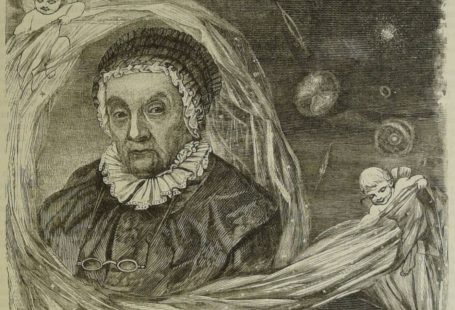Here at The Archive this week we have released 73,928 brand new pages – and we are delighted to welcome three brand new titles to our ever-expanding collection, covering three different countries and nearly a century of news.
Register now and explore the Archive
Our first new title this week is for the West Yorkshire town of Halifax. Described as a ‘reputable provincial newspaper,’ the Halifax Guardian began life in 1832 as the Halifax Guardian and Huddersfield and Bradford Advertiser. The preferred local newspaper of the Brontë family, the Halifax Guardian was known to devote space to literature, and indeed even featured works by Branwell Brontë. A weekly publication, appearing every Saturday, the Halifax Guardian‘s final edition was published on the 30 April 1921.
Halifax Guardian | 14 January 1843
Our next new title this week spans a multitude of Irish counties, including Offaly, Laois, Tipperary, Galway, Roscommon, Clare and Westmeath. This newspaper is of course the Midland Tribune, which was first published in 1881 and is still in print to this day. Based in Birr, County Offaly, the Midland Tribune was known for its support of the Irish Parliamentary Party, also known as the Irish Party or Home Rule Party, the official party of Irish nationalist MPs elected to parliament in Westminster. However, following the Easter Rising, the newspaper switched its allegiance to Sinn Féin.
Midland Tribune | 19 April 1883
Rounding off our new titles this week is the Englishman’s Overland Mail, known simply as The Englishman from 1891. First published on the 9th January 1864, the Englishman’s Overland Mail was founded by Robert Knight, one of the founders and editors of the Times of India. ‘Published for transmission to England,’ this newspaper was printed in what was then known as Calcutta (Kolkata today), the capital of the British Raj. It contained news pertinent to India, with detailed articles on the country’s infrastructure, legal system and local intelligence, before ceasing publication in 1928.
 Englishman’s Overland Mail | 24 June 1865
Englishman’s Overland Mail | 24 June 1865
In addition to these new titles, we have also added pages to the Halifax Express. Covering the local towns of Bradford, Huddersfield and Wakefield, this short-lived publication appeared between 1831 and 1841 and supported a political alliance between the Radicals and the Whigs/Liberals.
The Brontës’ Local Newspaper
Staying in Halifax, we will now look at the connection between that town and the Brontë family, and most particularly their relationship with the Halifax Guardian. The town of Halifax is just over ten miles away from Haworth, where the Brontës lived and wrote, and as such, the Halifax Guardian was their local newspaper. And we were lucky enough to find a letter from the Brontë family patriarch within its pages – as the Reverend Patrick Brontë (father to Charlotte, Emily, Anne and Branwell) wrote to the newspaper in 1843 to address the ‘ominous and dangerous vagaries of our times.’
Halifax Guardian | 29 July 1843
The years preceding 1843, and indeed the year 1843 itself, were a time of great social agitation in Great Britain and Ireland, and this is what Patrick Brontë tackles head on in his letter of July 1843:
The…fearful project of the repeal of the Union, in the Emerald Isle, the sensitive, senseless, and serious secession from the Kirk of Scotia, the selfish corn-law agitation in Albion, and the Rebecca movement in Wales, are all of the same family.
Before unpacking Brontë’s obvious derision of these ‘agitations’ affecting Ireland, Scotland, England and Wales, it is useful for us to understand exactly what these movements were. ‘The repeal of the Union’ refers to attempts to repeal the 1800 Acts of Union, which merged British and Irish parliaments. Spearheaded by Daniel O’Connell, who founded the Repeal Association in 1830, he named 1843 as the ‘year of repeal.’
Meanwhile in Scotland, 450 evangelical ministers broke away from the Church of Scotland in what was known as the ‘Disruption of 1843.’ Led by Dr David Welsh, they went on to form the Free Church of Scotland. In England, protests continued over the Corn Laws of 1815, which were put in place to keep grain laws high in a show of British mercantilism. This raised food prices and living costs, and were finally repealed in 1846 by Prime Minister Sir Robert Peel in reaction to the Irish famine.
Patrick Brontë | Illustrated London News | 25 November 1893
Finally, the so-called ‘Rebecca Riots’ in Wales began in 1839 as a reaction to perceived unfair taxation by farmers and agricultural workers. These male protesters would dress as women and attack toll-gates, notorious symbols of repression, whilst adopting the persona of ‘Rebecca’ from this passage in Genesis: ‘And they blessed Rebekah and said unto her, Thou art our sister, be thou the mother of thousands of millions, and let thy seed possess the gate of those which hate them.’ The Rebecca Riots gradually ceased by 1844, due to an increased presence of troops, and the abuse of the cause by criminals, who adopted the rallying cry of Rebecca for their own nefarious ends.
And now back to Patrick Brontë, who condemns all of the above movements, lamenting how:
…true religion, and consequently sound principles, have been, and still are, in an alarming degree on the decrease, and a restless disposition for change, an untoward ambition, a recklessness of consequences, and a struggle for power and predominance…have taken possession of the minds of numbers.
Brontë acknowledges that the editor, and ‘some of [his] readers, may think that in these strictures I am an unjust and or severe,’ but he lays down his conservative views with robust conviction. Indeed, in his rich and stirring use of the English language one can see from where his children might have got their talents, although not necessarily his views. Moreover, it is a fascinating snapshot into the mind of a country clergyman faced with the challenges of huge upheavals within his community, and even more fascinating as it is the stuff of literary legend.
Halifax Guardian | 29 July 1843
New Titles
Title |
Years Added |
| Englishman’s Overland Mail | 1864-1905, 1907-1922, 1926-1928 |
| Halifax Guardian | 1843-1844, 1847-1850, 1852-1854, 1868-1869, 1884, 1889, 1894, 1900-1902, 1912, 1918, 1921 |
| Midland Tribune | 1881-1912 |
Updated Titles
This week we have updated one of our existing titles.
You can learn more about each of the titles we add to every week by clicking on their names. On each paper’s title page, you can read a FREE sample issue, learn more about our current holdings, and our plans for digitisation.
Title |
Years Added |
| Halifax Express | 1835-1837 |
You can keep up to date with all the latest additions by visiting the recently added page. You can even look ahead to see what we’re going to add tomorrow.











